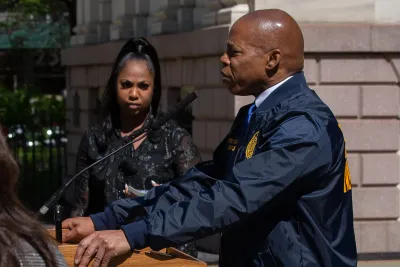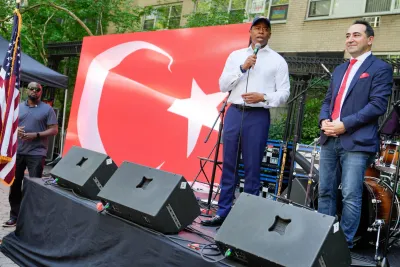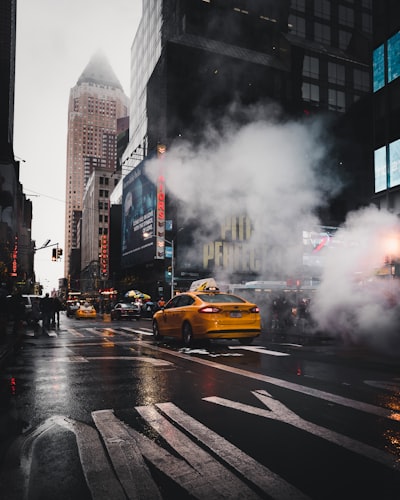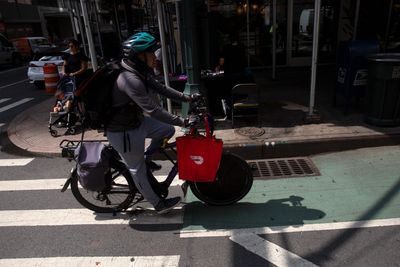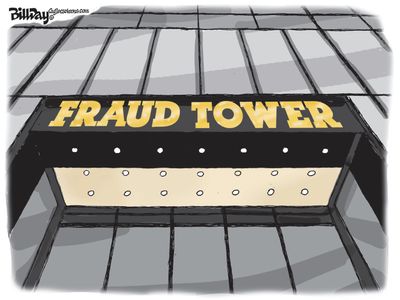Greg David, Yoav Gonen, and Katie Honan, THE CITY

This article was originally published on Feb 16 at 9:58pm EST by THE CITY

Mayor Eric Adams on Wednesday proposed a preliminary $98.5 billion budget for the fiscal year that starts July 1 — slightly less than the $98.7 billion ultimately adopted last June under former Mayor Bill de Blasio following an infusion of federal COVID relief funds.
Adams proposes keeping the budget lean through such measures as moving NYPD officers in desk jobs onto patrol, letting jobs go unfilled and mandating 3% cuts at most city agencies — with an estimated reduction in the municipal worker headcount of more than 10,000 employees by the end of the 2023 fiscal year.
Those cuts will save $1.1 billion in the coming fiscal year, according to City Hall documents.
The proposed budget would also add $926 million for new or expanded programs, including 30,000 additional summer youth jobs and a number of maternal health initiatives — spending that’s more than offset with previously unanticipated revenues.
Roughly $250 million of the new spending would come from a signature Adams proposal highlighted in his campaign for City Hall: an expanded income tax credit for low-income families, though far shy of the billions of dollars in child tax credits that city families received last year from federal funds that expired in December.
Low-income straphangers will also be eligible for half-price MetroCards, a program launched by former City Council Speaker Corey Johnson that will receive additional funding.
“As we build back from two years of uncertainty and trauma, we must ensure our finances promote growth and resilience for the long term,” said Adams in presenting his budget. “We must push back against government waste and inefficiency.”
Adams proposed a funding reserve of $6.1 billion, or about 6% of the annual budget.
However, the mayor’s touting of that number as the largest reserve in the city’s history drew an immediate challenge as “not credible” from City Comptroller Brad Lander.
Former Comptroller Scott Stringer frequently argued that the city needed a reserve of as much as 18% of its budget, or $18 billion.
Lander called the additions to the backup funds in the first Adams budget — $55 million in the general reserve — “scant” and criticized the failure to plan for additional reserves in the rest of the mayor’s term.
State Comptroller Tom DiNapoli echoed the call for higher reserves.
A ‘Manageable’ Future
Andrew Rein, president of the nonprofit Citizens Budget Commission, praised the mayor’s initiatives to reduce spending across city agencies, including a reduction of 7,000 unneeded vacant positions in fiscal 2023 to trim the city’s budget.
But he called for more savings in case of any upcoming economic setbacks.
“Even in these times we need to be preparing for the next downturn,” he said. “The city should put at least $500 million into the rainy day fund each year.”
Capitalizing on record Wall Street profits last year but recognizing the lagging recovery in jobs, Adams projected an additional $2 billion for revenues for the current fiscal year that ends June 30, but only an increase of an additional $2.5 billion over the next three years.

De Blasio frequently increased spending by as much as 8% a year as the city saw soaring tax revenues before the COVID pandemic.
In a stark contrast to the de Blasio administration, during which the budget increased at three times the inflation rate, the average annual increase in spending over the next four years is projected at only $400 million.
The budget for the upcoming year is balanced and the gaps that will need to be closed over the next three years average $2.5 billion — which the mayor called “manageable,” an adjective most fiscal experts would agree with.
NYPD Funding Flat
The mayor did not allocate any money for raises for city workers even though the contracts with municipal unions begin expiring this year, raising questions of where he will get the money for the increases workers are expected to demand, especially with inflation accelerating.
It also doesn’t begin to address the $1 billion in programs that are currently being paid for with federal aid that’s set to end in several years.
And while public safety remains a major concern, Adams — who is often critical of the “defund the police” movement — said the department’s budget would not diminish.
Instead, he wants to work with the roughly 35,000 officers he currently has in the department to move some back to patrol.
“There may be a slight decrease in the next few months but it’s basically going to remain flat,” he said of NYPD funding.
City Council Speaker Adrienne Adams (D-Queens) and Finance Committee Chair Justin Brannan (D-Brooklyn), who will later present their own budget proposal and will ultimately lead a Council vote, praised the mayor’s budget for what they said was the promotion of equity.
“We must continue investing in New York City’s families and workforce, while ensuring affordable housing, health equity, small businesses and mental health care are priorities,” they wrote in a joint statement.
THE CITY is an independent, nonprofit news outlet dedicated to hard-hitting reporting that serves the people of New York.
